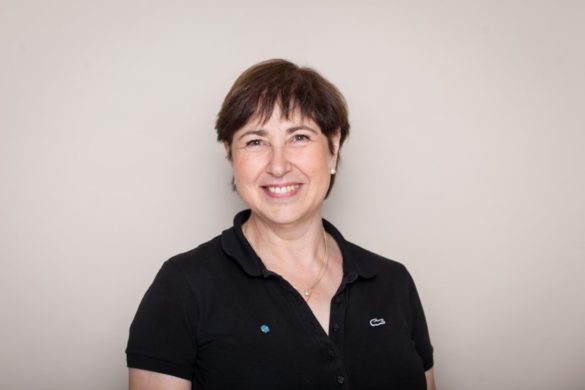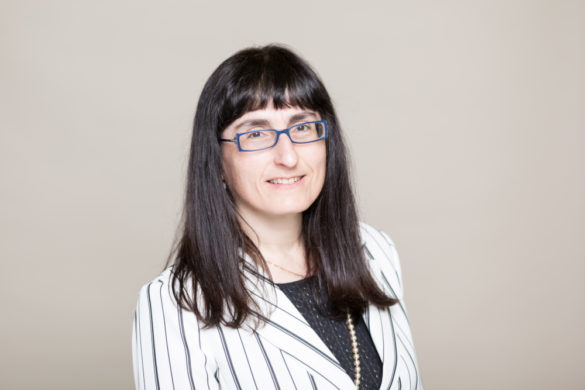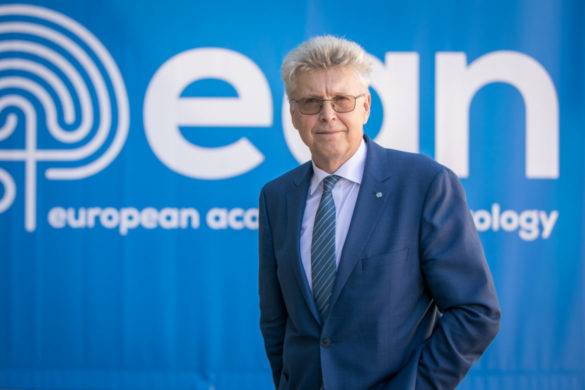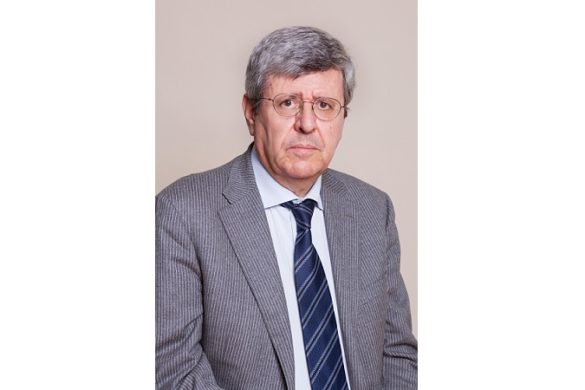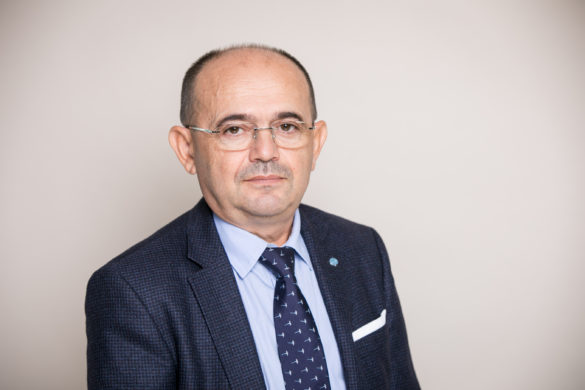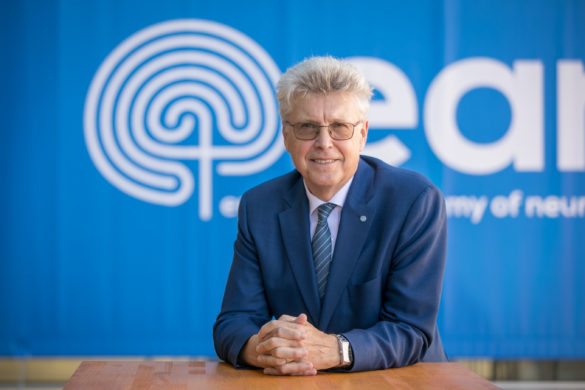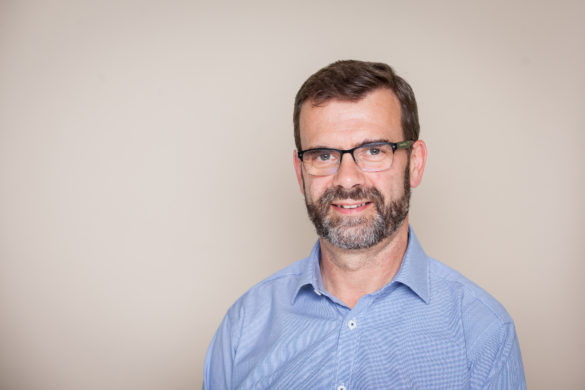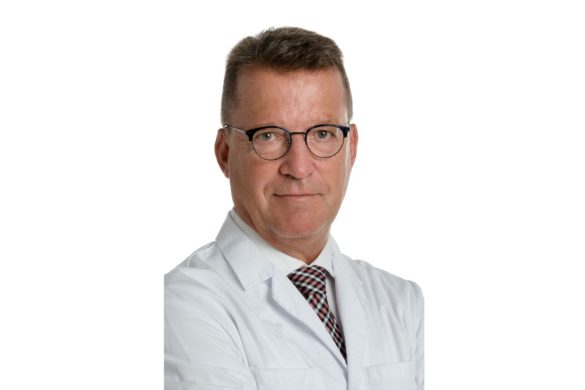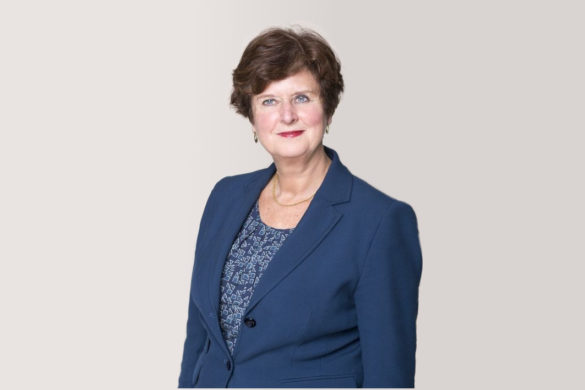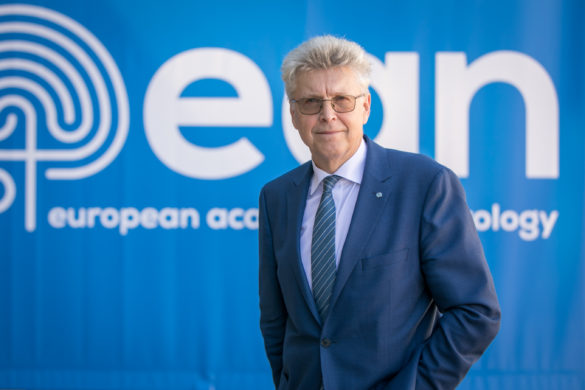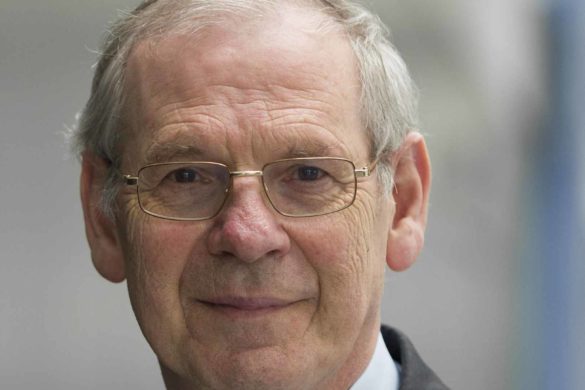It is my great pleasure to be invited to introduce myself to you in my new role as editor of EAN Pages, starting at our Congress in Oslo. I am a neurologist based in Sheffield in the UK, running busy general and neuromuscular clinics, with a research interest in motor neuron disease. First of all, I want to thank my predecessor and friend, Professor Elena Moro, for leading us to our current position of strength at EAN Pages.
Category
Executive Page
-
-
Executive PageFeatured Slider
Executive Page: Time for action Be creative for the present time and visionary for your future in Neurology
June 24, 2019How can the EAN members be creative for the present time and visionary for the future of neurology? -
Dear EAN members, It is my pleasure to share with you some exciting news about EANpages.
-
Executive PageEAN NewsTop ArticlesFeatured Slider
Executive Page: Preparations for Oslo on track – get registered soon
April 1, 2019Dear colleagues and friends, I am very excited that the EAN-family will meet again in Oslo in less than three months. I can assure you that all preparations are full on track. -
Executive PageEAN NewsFeatured Slider
Executive Page: What is EAN doing for education in neurology
March 1, 2019Dear Colleagues and Friends, Education is one of the major priorities for the EAN, and the Society offers several opportunities. Over the last years, the educational program at the EAN annual Congresses has been increasingly articulated in different formats (traditional Teaching Courses, Hands-on-Courses, Interactive Sessions including the EAN Brain Challenge, Case-based Workshops, Controversies, and Career Development Sessions) in order to better fit with the multifaceted aspects of Clinical Neurology. -
Executive PageEAN NewsFeatured Slider
Executive Page: the EAN Communication Committee – our visions and goals
February 1, 2019Dear colleagues and friends, I am writing to convey my very best wishes and sincere thanks to all, as we have wrapped up an eventful year and have shifted our momentum to the challenges that lie ahead: 2019. The past 12 months have been marked by noteworthy achievement and change. As we all reflect on the past year, I think that we have many reasons to look forward with enthusiasm toward what has yet to come. -
Dear colleagues and friends, the weeks before the change of the year usually serve not only to accomplish the last pending tasks but also to reflect on the past 12 months and to think about what lies ahead. I probably have this in common with many of you who profit from some slowing down of work during the holiday season as everyone is busy preparing for Christmas and the turn of the year invites to look back and to make new plans.
-
Executive PageEAN NewsFeatured Slider
Executive Page: Season’s Greetings from the EAN Board
December 1, 2018Dear EAN members, Dear colleagues and friends, the political landscape across Europe and around the world is currently quite shaky and experiences a lot of turmoil, confrontation and egocentric behaviour. In this situation it is comforting that the “Neurological World“ does not follow this dissolution but rather moves in the opposite direction. There is increasing readiness for close collaboration and efforts to join forces among scientific societies and these synergies are critical for convincing decision makers of the benefits of supporting health research and other measures which help to assure the well-being of Europe’s population in the future. -
Dear Colleagues, I hope that you are all looking forward to the 2019 EAN congress in Oslo, and that you are planning abstracts to submit! On October the 16th I attended an inspection visit of the congress venue, along with Franz Fazekas our president, Erik Tauboll chair of the local organizing committee, members of the EAN office team and representatives from Industry partners that are sponsoring our congress.
-
Executive PageEAN NewsFeatured Slider
Executive Page: A team to face the challenges ahead
October 1, 2018Dear EAN-Members, Dear colleagues and friends, I hope that you all had a wonderful and relaxing summer, and that you have regained the energy needed for being successfully back to work after vacation. I always enjoy when the speed and intensity of daily activities reduce a little over summer, and I am sure that such times are also important for rethinking projects, developing new ideas, and enhancing our creativity. -
Executive PageEAN NewsFeatured Slider
Executive Page: American Dream 2018: Report of a Sleep Researcher
September 1, 2018In 2 weeks, my sabbatical period in the United States, which started in April 2018, will come to an end. The word sabbatical comes from “Sabbath,” which in the biblical Old Testament was described as, “In the seventh year the land shall have a Sabbath of complete rest …” Today in Academics, it is obviously not simply rest. For me it was a break after 23 years of an uninterrupted hospital and university activity, 17 of which as chair or vice-chair of large neurological departments. -
Executive PageEAN NewsFeatured Slider
Executive Page: Become a member of EAN, the ‘Home of Neurology’!
August 1, 2018The mission of EAN is ‘to promote excellence in neurology across Europe’. Therefore we need you, our colleagues, to become individual EAN members. Membership is not only for your own benefit, but also to accomplish our mission. As an individual member you can play an important role. By standing for election for the position as Delegate in the Assembly of Delegates you can become an influencer. -
Dear EAN Members, dear Colleagues, The 4th annual Congress of the European Academy of Neurology just held in Lisbon on June 16th - 19th was a spectacular event. More than 6,700 participants from 104 countries attended the meeting which covered the whole range of neurologic disorders in various formats, and offered altogether 42 scientific and 48 educational sessions. Besides several teaching courses and educational activities, the congress also comprised of 20 case-based workshops and interactive sessions, 7 hands-on courses, and 3 career development sessions.
-
The first team of board members is going to retire after the Lisbon congress and the incoming president, Franz Fazekas from Graz, Austria, will take over. He is an outstanding scientist in the field of Stroke and Multiple Sclerosis and has done a marvellous job for our Society during the past 4 years. His many qualities as an Austrian Cosmopolitan are a guarantee for an integrative presidency for the next years of further development of this young Society. It is my privilege to thank him and the outgoing board for an excellent collaboration.
-
Executive PageEAN NewsFeatured Slider
President’s page: The upcoming Lisbon congress of EAN
May 1, 2018As every year, spring time is high season for preparing for the annual congress - this year the 4th congress of the European Academy of Neurology in Lisbon. It is the annual main event of our Society and we expect around 6000 participants in this special and historically attractive Portuguese capital. The congress has continuously adapted its profile and one of the main goals of our Society is to continuously develop new formats which satisfy the requests of modern neurology and its drivers, the European Neurologists. Our program committee under the leadership of Prof. Boon has excellently realized this request with many new innovations.


